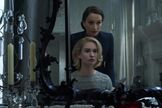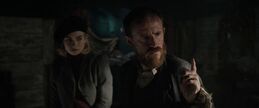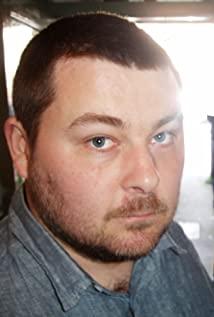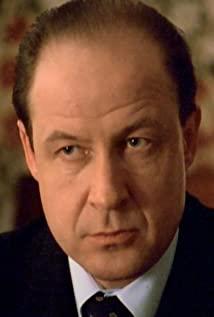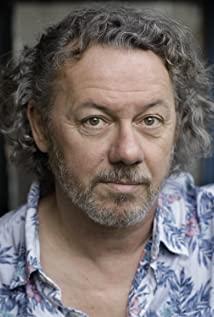Rebecca in "Butterfly Dreams" is probably a rare "nothing to hear, no appearance" in various literary and film works. It only appears in everyone's oral and memory, but it can make everyone worry about it. A character who fell in love or hated.
In 1940, Hitchcock used a "Butterfly Dream" (or in fact, literally translated as Rebecca, more appropriate) to get the best film Oscar, and the new version of "Butterfly Dream" in 2020 also tells the once man Behind Rebecca, the hostess of Deli Manor. Although the script is still so beautiful with a gloomy temperament, it is a pity that it has not been able to go further under the excellent interpretation of the old version of the film, and it has been reduced to a color high-definition remake of the 1940 version 80 years ago.
Even the old version of the heroine Joan Fantine is even better than Lily James.
Spoiler alert
How to describe a character that does not appear in the movie is the biggest challenge and charm of this movie.
The story of the movie is not complicated in the first half. A young, beautiful, and not wealthy girl meets a handsome nobleman who is recently widowed. The two are in love and immediately get married and move into the huge manor life, but as time goes by, she pays more attention to the manor. Left over from up and down, the imprint of the last mistress Rebecca.
The most interesting aspect of the script is that it almost completely hides the image of Rebecca. All her life and stories are dictated by others.
For example, Ms. Van Hopper, whom Lily James worked for at the beginning, didn't really understand Rebecca, so she just confessed the fact that Derwent had lost his wife.
But as the heroine became Mrs. Derwent and entered the Mandeley Manor where Rebecca once lived, everything rushed to the little heroine like a storm.
The butler of Danfoss is naturally the instigator of everything. She is loyal to Rebecca, so she always reminds the hostess of the life of the former hostess of the manor, whether it is the food and clothing, or everyone's right Rebecca's high praise has created a nearly perfect image for Rebecca. Under the tremendous pressure of this image, the heroine's life in Mandeley Manor was walking on thin ice, and seeing some of Rebecca's old things from time to time made her feel unhappy.
Contrary to the surrounding friends and Danfoss butler, Derwent’s attitude towards Rebecca is to avoid talking about it. And Derwent's sleepwalking towards that forbidden boudoir made her envy Rebecca's majesty, but also a little afraid of the legacy of that perfect man.
So between saying and not saying, Rebecca already has a perfect personality even if he didn't play.
However, the plot is by no means limited to this. At the beginning of the two-thirds of the movie, as Rebecca’s body was found, Rebecca’s image began to change drastically. The "vicious, passionate" Rebecca described by Derwent took the previous perfect image. Broken, and the waves caused by a letter from Rebecca’s lover and cousin condemned Devin, and the mystery finally revealed by the doctor made Rebecca’s image even more elusive.
In other words, as we learn more about Rebecca, we become more confused about her character and life. She finally knew that her death was approaching, and drove Derwent to kill her with hatred. She also knew that her death would cause great trouble to Derwent, so she deliberately sent a letter to Fawel as a backhand, so that even if she died, she could still pester Derwent all night.
But what exactly did Rebecca go through to make her do such a vicious thing? There is no unreasonable malice. Rebecca broke the perfect veil, but the face behind it made us hard to see. The more people in front of us praised, and the moment the truth came to light, the more we could realize how hideous the smiles behind this perfect mask were.
With the change of Rebecca's identity, the most important setting in the plot is the "ambiguity" of all behaviors.
Looking at the first half, we might think that Rebecca is an extremely perfect character, and Derwent is unwilling to talk about the pain caused by Rebecca because of his incomparable love, and sleepwalking into the old house late at night is also infatuated.
But after watching the plot behind, we also know that all of Derwent’s actions are because he hates the soul who has tortured him alive and will not die after death. This long nightmare makes him still asleep even if he is asleep. Stuck in the old house.
Therefore, the translation of "Butterfly Dream" is as beautiful as the literal translation of "Rebecca". Rebecca has never appeared in the film, but invades every frame and the true heart of each character. Heroine.
Among them, the Danfoss butler, who is most loyal to Rebecca, is also very interesting to think about. She admired Rebecca's perfect image so much that she was very upset with this new, reckless little girl, and was squeezed out everywhere. Knowing that Rebecca had a rift with Derwent, she even became the one at the prom. Embarrassing sight. Her love for the old master is so deep that she even wants to force the heroine to commit suicide.
But is the Rebecca she saw the real her?
She didn't know the secret behind the hostess, even after she knew it, she still tried her best to maintain Rebecca's image.
But in the end, she chose to destroy Mandeley Manor together. In my thinking, she still wanted to retain the image of the perfect hostess in her memory. The burning of Mandeley Manor was a disillusionment of dreams.
It's just a pity that the new version of the movie, with the blessing of such a plot, can't really break away from the shackles left by the old version 80 years ago and get out of the new style.
Not to mention that the plot is basically the same. After all, it was adapted from the same novel, and the plot could not have been modified too much.
But we will use a few differences from the old version to tell the difference between the new version of "Butterfly Dream".
The final turning point of the plot is the scene where everyone knows that Rebecca is actually suffering from cancer and not pregnant.
The old version was the police, and Derwent and Faville went to find the doctor and listened to the doctor to tell the truth. The doctor slowly remembered the patient first, and then said something different from everyone's expectations. This turning point was beyond everyone's expectations. Derwent went from despair to surprise, and Faville went from excitement to depression.
However, in the new version, both Derwent and Faville are not on the scene. The screenwriter uses the clever heroine to hide from the police and finally reveal the truth, thinking that this will make the audience nervous, but once the heroine's hiding distracts the audience from the facts Attention to the truth. Secondly, the heroine first saw the medical records, and then told the truth. The facts were slowly pushed out as if they were split, making this reversal weak.
What's even more pity is that Derwent revealed to the heroine Rebecca's true identity and the plot of everything that happened that night. The new version is almost neatly laid out and straightforward. The top day makes us wonder if Derwent is fully supported. Kill the heroine after going out.
Let's see how Hitchcock did it.
In the plot depicting Rebecca's forcing Derwent, the camera turned to the side of the empty room, but accompanied by the male protagonist’s statement, the camera rose from the sofa and slowly moved towards Derwent. Even if there is no one in the camera, we can still feel the corners of the mouth raised by the hostess from the past.
Yu Jinglei and the silent place, just like this movie, a character who has already died after appearing on the scene can cause such a storm. This is also the brilliance of the old version. (Hitchcock also used this technique in "Imperial Soul" later, recreating the murders that happened in the past through moving empty shots and descriptions, which can be described as clever)
And the new version, really, as I said at the beginning, although it has a solid plot as a background, with the blessing of high-tech technology, the effect presented is still regressive compared with the old version 80 years ago, and it is completely reduced to one. Color high-definition remake.
The performance of Lily James also failed to reach the stunning performance of Joan Fantine that year.
The old version of "Butterfly Dreams" is like a nightmare that plagued Derwent. After eighty years, behind the new version of "Butterfly Dreams", it follows.
View more about Rebecca reviews



